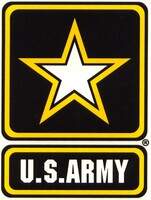Us Army Great Skills Program
- Joined
- May 1, 2012
- Messages
- 3
- Location
- Afghanland
My goal when I enlisted was going in the MI field, but wanted to get the experience on the ground and combat first, so I could be in the fight and to better understanding for both fields, not just looking at it from one angle. Having the experience and time(currently been a Scout for 3 1/2 years, I want to reclass to 35L. My ETS now put me out of my window until the next window opens (ETS Dec.2014) so I have at least another few months until I can reenlist for the job.
I was wondering how difficult the application process and the transition would be for someone in my career field. I have a clean record, one speeding ticket witch I don't believe will hold me back. From my understanding though, getting my S to a TS can be a lengthy process as well. So my end goal is obviously a ways away. But when everything falls in to place and I do become a 35L, what is the likelihood of me working with special operations, and process would I need to go through to accomplish that?(Schools, pocs?) I'm fully healed and ready to do what is needed.

Does anyone have any info on the US Army's 'Great Skill Division' which falls under the Military Intelligence branch. GREAT SKILL is a nontraditional career program managed by the Department of the Army G-2. GS Soldiers provide support to complex operations for the U.S. Army, the DoD, and national agencies. Many of our missions are conducted in support of Overseas Contingency Operations and U.S.
Regardless of your industry or type of work environment, transferable skills such as communication and leadership can allow you to seamlessly transition from one career to another. Whether you’re looking forward to retiring from the military or completing a short-term assignment, it’s never too early to start thinking about the skills needed across several industries. For service members, contacting the US Army Transition Assistance Program or Army Career and Alumni Program is a great place to start. Both programs provide assessments tools and testing to help match your interest and abilities to suitable career paths.
Army.comcompiled a list of the soft skills below that enlisted service members can learn while still in the Army:
Leadership
Contrary to popular belief, great leaders are made, not born. During an enlisted member’s time in the service, he or she learns critical leadership (How to lead and be led) skills while in basic training. As an E-1 through E-3, you learn how to follow orders; as an E-4 Corporal, you start to learn how to give orders and lead troops.
Strong work ethic – Â Most experts say employer’s value service members because they tend to be motivated, loyal and mission-focused. These skills have become habits for most service members, making them highly marketable to civilian employers.
Organization
From saving time and money to reducing stress and problems with customers, organizational skills are essential to any role within a company.  As a soldier, from organizing your people to your equipment, the Army teaches you to organize everything you manage.
Management
From delegating and coaching to training and mentoring, managers possess a variety of essential skills that are core to operating a business. Resources must be managed to obtain maximum efficiency and accountability. Not only do you have to know where your people are at all times (no soldier left behind), but you may be responsible for millions of dollars of equipment, much of which could be critical to our national security.
Inscom Great Skills
Communication
In the military, the lives of your team members depend on effective communication. From clearly providing instructions, writing a report to directing your team on patrol, being able to communicate effectively is vital.
Read more at Army.com...